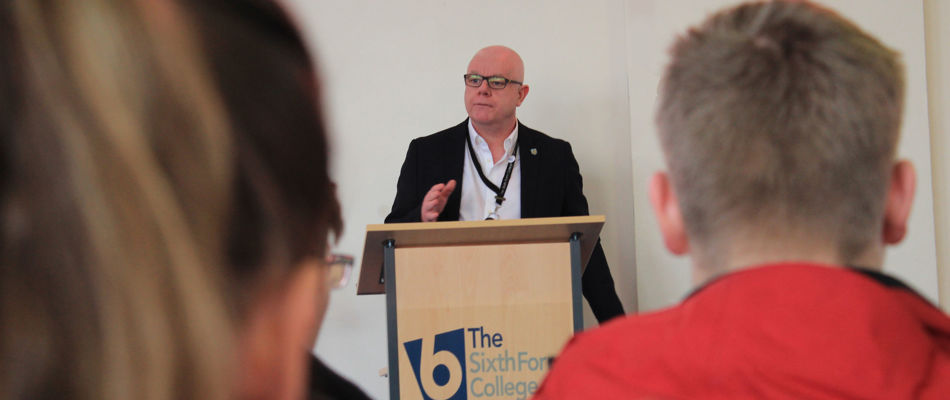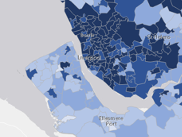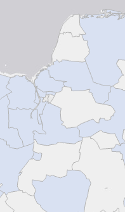Assessments 2021 - a fair and valid process?
Back
The Government announced on the 12th October that, to account for the disruption to education caused by Covid-19, there would be a three-week delay to the start of the GCSE and A-Level exams in 2021. Other than this nationwide allowance there would be some very minimal adjustments to a very small number of specifications; the sector sees these as offering little in the way of adjustment.
The challenge
It is accepted that there has been a considerable impact on the capacity of the sector to deliver a normal educational experience, hence the adjustments above. However, these adjustments do not go far enough to deal with the current and expected disruption and certainly do not, in any way whatsoever, account for the considerable variation in experiences and therefore levels of disruption across the country, experienced by different groups.
Put simply: an uneven and therefore inconsistent experience, cannot be accounted for with a consistent adjustment.
The heat maps below show the rates of confirmed Covid-19 positive tests for the week 4th to 10th October 2020.1
 Liverpool City Region
Liverpool City Region


Liverpool City Region King’s Lynn & West Norfolk
These maps show the huge variation in rates between these two regions. They are chosen as they are at the extreme ends of the distribution, but this does not diminish the fact that they will result in very different experiences for those students studying in these regions.
Different experiences
The students studying in these areas are not having the same experience and this has been the case for some time now. This is despite the efforts of their schools and colleges and all those who seek to support them. The DfE and local authorities have given support, but at the operational and experiential level, what they are doing, no matter how comprehensive and exhaustive, is simply not able to even out the experiences of students living in areas with different levels of Covid-19. This difference is not being addressed by making the same allowances for all these students, with their different experiences. Logic demands that different experiences require different adjustments.
Without variations in the adjustments made, outcomes will be unfairly impacted by different experiences, and some students will have their opportunities more impacted in a negative way through no fault of their own or the institutions that teach them.
To illustrate via one local experience, my own:
In the Liverpool city region, many more students have tested positive than nationally. Even the very best on-line and virtual support will result in them having a diminished experience. To deny this is simply silly.
In addition, not all students will have the same or equal on-line experiences. Some schools and colleges do this better than others, and for some achieving this is a greater challenge than for others.
There is little point is pointing to the government’s requirement for high quality on-line learning to be available from the 22nd October. This will not mean that all experiences suddenly become good, and they certainly will not become consistent. It does not serve the students being differentially impacted to hide behind this ‘requirement’ and attest that as a solution.
This situation must also be considered from the perspective of the teacher who is having to deliver this material. There are a range of different models that have been adopted to account for these challenges, but they are all limited by the fact that the supply of teachers is limited and the capacity of each teacher is finite.
One model for supporting students who are having to self-isolate that is amongst the most effective is to have these students dial into physical lessons. This does work well but will still result in a diminished experience for those students and possibly to the students attending physically. This is because good teaching is not just delivering material, but it is orchestrating a room of very different individuals. This requires the observation of each of them and adjustment to what is being taught in real time to ensure all are engaged and making progress. When done well this requires the full focus of a skilled practitioner and is consequently very demanding. If that same teacher also has to manage a student joining on-line, making sure they can access the material, and checking their learning then this will inevitably take some attention from those students physically present.
It is therefore the case that the more students testing positive, the more frequent this experience, and the more diminished the learning for all. This on its own means that those students in the Liverpool region cannot get a comparable and equal experience to those in the King’s Lynn area. This is no one’s fault, there is no blame; it is a simple circumstance that needs to be accounted for.
It must also be acknowledged that delivering this type of dual lesson puts extra stress and strain on the teacher in the class and will also require them to adjust their material. Something will have to give somewhere! While there are lots of on-line resources that can be shared and used by these teachers and/or these schools, the idea that this reduces the demands on teachers and thereby to some extent solves the problem has any teacher hearing this with their head in their hands. No matter how good a resource may be, it has to be identified, assessed, inevitably adjusted to fit a particular class, and then put into the context of what has come before and what will come after. None of this can be done without considerable additional work.
Dual lessons are just one model for supporting students required to self-isolate, but any model adopted will come with a range of factors that will diminish the experience and place stress on teachers and systems.
Dual lessons also require high levels of technical competence and excellent IT facilities. This is simply not the case everywhere. Again this is not the time to ask why or to demand that it should be; we are dealing with the situation as it is. The DfE has distributed large numbers of laptops but these do not meet the need in all areas, so again there will be unevenness. These resources will also by themselves not magic up the capacity to use them with equal effectiveness. Some organisations are further down the path than others. Again, this is the situation as it is at an operational level. Let’s not criticise, blame, or worse, suggest that it has been solved. It has not.
Sitting behind all this is the issue of social and educational disadvantage. The EEF has estimated that that the disadvantage gap grew during lockdown. Unfortunately, those students who are most disadvantaged already found themselves failing further behind. There are great efforts, and support, to help these students catch up but, without wanting to go over the obvious, would any right minded person claim that where these students now happen to live in areas that are more disrupted by Covid-19 that this will not significantly impact on their current education and also any required catch up?
Finally, there is the school itself - these times are demanding for all but more so for some than for others. The amount of cover, support and additional duties that are needed working in areas with high Covid-19 is considerable. The workforce, both teachers and support staff, is drained. They are determined to carry on and keep schools and colleges open, but when people are drained they will not always be at their best, no matter how determined they may be.
As well as operating with drained staff the costs of operating in high Covid-19 areas are also financial. A very obvious example of this is the need for supply teachers to cover those teaching staff who are not able to be in school or deliver remotely. Many schools have already exhausted much of their budget for 2020-21 - it is just another additional stain.
Those of us working in these badly impacted areas are being required to believe that a three-week extension and some extraordinarily minor adjustment to a few specifications will deal with the impact of Covid and somehow even out the playing field of assessment in 2021. They will not. Substantial further adjustments need to be made to account for the very different experiences that students and schools are having.
Adjustments need to be made at a subject-specific level: the introduction of signposted optionality might well work. There needs also to be some means by which the differential impact on some areas can be adjusted for. Solutions are not easy, and a single national solution might not be enough. Whatever the solution may be there must be input from the operational level; to bypass this will almost inevitably invite failure down the line.
Mike Kilbride is principal of Birkenhead Sixth Form College, CEO of the BePART Educational Trust, and chair of the Wirral Association of Secondary Heads.
1 https://www.arcgis.com/apps/webappviewer/index.html?id=47574f7a6e454dc6a42c5f6912ed7076

